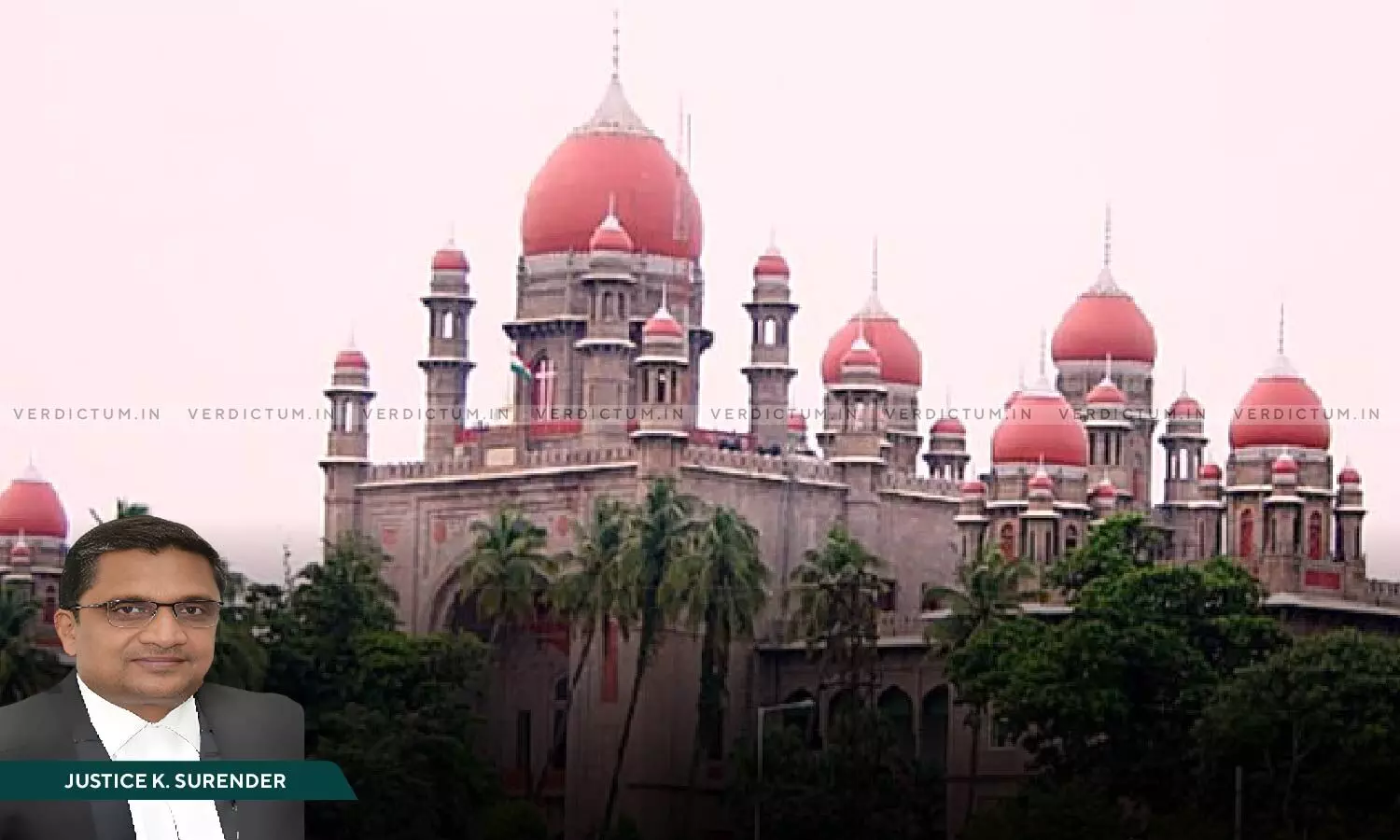
Every Commercial Activity Where An Outstanding Arises Would Not Fall Within Ambit Of Section 3 Of PMLA: Telangana HC
 |
|The Telangana High Court has quashed money-laundering proceedings initiated by the Enforcement Directorate (ED) against the Petitioner (Director of MBS Group of Companies) while remarking that since there is no criminal activity nor any property which is derived because of criminal activity, proceedings cannot be permitted to continue.
The Bench of Justice K. Surender observed that "every commercial activity where an outstanding arises would not fall within the ambit of Section 3 of Prevention of Money Laundering Act [PMLA]".
Senior Advocate Ravi Kiran Rao appeared for the Petitioner and ASG A.R.L. Sundaresan & CGSC V. Ramakrishna Reddy appeared for the Respondent.
In a nutshell, the Petitioner received gold from MMTC Ltd. on buyers’ credit loan basis by keeping the forex position open. Later, on account of rupee fluctuation, lowering the value of the rupee, the Petitioner was liable to pay additional 5% margin money in accordance with the MOU. However, as per the CBI charge sheet, it was alleged that Petitioner entered into criminal conspiracy with public servants of MMTC and received gold. Hence, an outstanding of Rs. 181.39 Crores as claimed by MMTC was reflected in the agreement that was entered into between MMTC and MBS Impex Pvt Ltd. whereby the Petitioner accepted said outstanding on account of devaluation of rupee by 27%. Accordingly, properties were attached by the ED under Section 5 of PMLA.
After considering the evidence and submissions, the High Court noted that it is not merely criminal activity relating to commission of a predicate offence, but property has to be derived directly or indirectly as a result of such criminal activity to be tried and prosecuted under Section 3 of PMLA.
In the case, no such property is derived or obtained either directly or indirectly by the Petitioner either involving in criminal activity or handling any such property derived as a result of criminal activity, added the Court.
Further, underscoring that the amount accrued is on account of dollar-rupee fluctuation and it cannot in any manner be held that the Petitioner had derived or obtained any property, the Bench emphasizes that though it agreed that differential amount of rupee dollar fluctuation would be paid, at most it can be termed as an outstanding which can be recovered in a civil suit and by no stretch of imagination, it can be called as “proceeds of crime” or the outstanding amount can be called as “property” as defined under Section 2(1)(v) of PMLA.
The Bench elucidated that the Petitioner or his firm can do nothing about the devaluation of the rupee vis-a-vis US dollar and that, in fact, in business terms the outstanding that had to be paid by the Petitioner’s firm would be termed as a loss occurred during the normal course of business transaction.
Accordingly, the High Court allowed the criminal petition and concluded that the question of concealing or being in possession or acquiring such property does not arise in the case.
Cause Title: Sukesh Gupta v. Directorate of Enforcement Hyderabad & Anr.